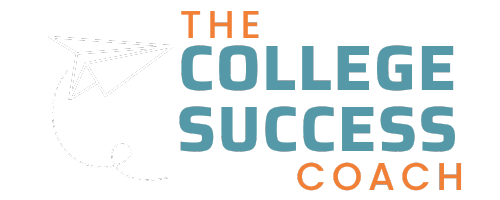Table of Contents
College Counseling vs Life Coaching
The Benefits of College Counseling and How to Know When You Need a Life Coach Instead
Navigating college can be one of the most exciting yet challenging experiences for students. Between academic pressures, social adjustments, and personal growth, students often find themselves in need of support to manage the demands of college life. One common resource available to students is college counseling, which can be a game-changer for mental health, stress management, and overall well-being. However, when considering college counseling vs life coaching, it’s important to understand the differences between the two. Counseling often focuses on addressing mental health concerns and emotional challenges, while life coaching is more goal-oriented, helping individuals achieve personal or professional aspirations. But how do you know when you need counseling services and when a life coach might be the better fit for your goals? Let’s explore the benefits of both, so you can make the right choice for your needs.
What Is College Counseling?
College counseling typically refers to the mental health and emotional support services offered on campuses. These services are designed to help students cope with various challenges they may face during their academic journey, such as:
- Anxiety and depression
- Stress related to past experiences or trauma
- Homesickness and loneliness
- Relationship issues
- Identity and self-esteem struggles
Counseling centers on campuses are usually staffed by licensed mental health professionals who offer individual therapy sessions, group support, workshops, and crisis intervention.
When considering college counseling vs life coaching, it’s important to note that counseling focuses on addressing mental health concerns and emotional well-being, while life coaching is more about achieving specific goals and personal growth. Seeking out college counseling services can be incredibly beneficial if you’re struggling with your mental health or facing emotional challenges that feel overwhelming. These professionals can provide a safe space to talk about your feelings and develop coping strategies.
The Benefits of College Counseling
- Mental Health Support: College counselors are trained to help students manage mental health issues, such as anxiety, depression, and grief.
- Crisis Intervention: Many counseling centers offer immediate support for students experiencing crises, such as suicidal thoughts or traumatic events.
- Addressing Past Trauma: Counselors help students work through deep-seated issues and past experiences that may be impacting their current mental health and behavior.When weighing college counseling vs life coaching, it’s essential to recognize that counseling is particularly beneficial for addressing mental health challenges and emotional struggles. Life coaching, on the other hand, is more focused on helping individuals set and achieve personal or professional goals. Understanding these distinctions can help you determine which type of support is best suited to your needs.
College Counseling vs Life Coaching: How Does Life Coaching Differ from College Counseling?

While college counseling focuses on mental health and emotional well-being, life coaching takes a different approach. A life coach, like me, works with students to help them set goals, create action plans, and develop skills to succeed academically, professionally, and personally. Life coaching is more forward-looking, focusing on future success and personal growth.|
When comparing college counseling vs life coaching, it’s important to understand that counseling often addresses mental health challenges and emotional struggles, while life coaching emphasizes personal development and achieving specific goals.
Here are some additional ways life coaching supports students:
- Managing stress effectively
- Dealing with loneliness by helping students meet and make friends
- Discovering passions, interests, and identity
- Improving concentration and academic performance through personalized strategies
Here are some key differences between counseling and life coaching:
| Aspect | College Counseling | Life Coaching |
|---|---|---|
| Focus | Mental health and emotional well-being | Personal development and goal-setting |
| Professional | Licensed mental health professionals | Certified coaches with experience in specific areas |
| Issues Addressed | Anxiety, depression, trauma, identity | Time management, confidence-building, career planning |
| Approach | Therapeutic, focused on past experiences | Forward-looking, focused on future goals |
When Should You Work with a Life Coach?
You might benefit from working with a life coach if you:
- Want to improve your time management skills
- Need help setting and achieving academic or career goals
- Struggle with balancing school, work, and social life
- Feel stuck and need guidance to move forward
- Want to build confidence and self-awareness
- Need support in managing stress and meeting new people
When considering college counseling vs life coaching, it’s important to recognize that life coaching is ideal for students who are doing well mentally but need additional support to excel in their personal and academic lives. Unlike counseling, which focuses on mental health and emotional challenges, life coaching is about helping you unlock your potential and create actionable steps to achieve your goals. It’s a forward-looking approach designed to empower you to thrive in all areas of your life.
Where to Find College Counseling Services
Most colleges and universities have a counseling center on campus. To find these services, you can:
- Visit your school’s website and search for “Counseling Center” or “Student Support Services.”
- Ask your academic advisor for a referral.
- Check your student handbook for contact information.
Additionally, there are many online resources available for students, such as:
- BetterHelp: https://www.betterhelp.com
- Talkspace: https://www.talkspace.com
- Crisis Text Line: Text HOME to 741741 for free, 24/7 support.
How the College Success Coaching Program Can Help
While college counseling focuses on mental health, our College Success Coaching Program is designed to help students navigate the non-clinical challenges of college life. When comparing college counseling vs life coaching, this program clearly aligns with the life coaching approach, focusing on personal growth and goal achievement rather than addressing mental health concerns.
- Improve time management and organizational skills
- Build confidence and social connections
- Balance academics with personal life
- Set and achieve personal and professional goals
- Manage stress and discover their passions
If your mental health is in a good place, but you feel stuck or unsure about how to succeed in college, life coaching might be the right fit for you.
Final Thoughts
Both college counseling and life coaching offer valuable support to students, but they serve different purposes. When evaluating college counseling vs life coaching, it’s clear that counseling is essential for students dealing with mental health challenges, while coaching focuses on helping students achieve their goals and develop essential life skills.
If you’re unsure which path is right for you, consider what kind of support you need most right now. Whether it’s addressing mental health concerns or setting yourself up for academic and personal success, there are resources to help you thrive in college.






0 Comments
Trackbacks/Pingbacks